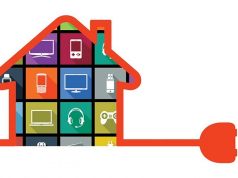
Executive Summary
By Sheila Viesca, Ph.D.
With insights from John Riad, CEO of HousingInteractive
Many people jump into the real estate industry in the Philippines, lured by the promise of high returns and the glamor of big deals. But the journey is full of potential, and also common pitfalls. Without the right preparation, it’s easy to learn lessons the hard way. This guide will help you avoid costly mistakes by building a strong foundation of skills and knowledge, learning from the experiences of others, and mastering the essential strategies for a thriving career in Philippine real estate from the start.
The Unbeaten Path to Real Estate Success
The path to success in real estate is rarely a straight line. It’s a journey filled with challenges, but also immense opportunities for those who are prepared. The most successful agents understand that a thriving career isn’t built on luck or chance; it’s forged through diligence, a commitment to continuous learning, and a proactive mindset. Instead of waiting for lessons to be learned the hard way through costly mistakes, the best professionals seek out knowledge and mentorship. This approach allows them to navigate the complexities of the Philippine real estate market with confidence and foresight, ensuring every step forward is a strategic one toward lasting success.
1. The Foundation – A Solid Education and Mindset
A successful career begins with a professional mindset that goes beyond just earning a commission. You must perceive your role as a trusted advisor, not merely a salesperson. This requires embracing continuous learning and professional development to stay ahead of the competition.
Cultivating a Professional Mindset
A proactive and professional mindset is your greatest asset. It’s what allows you to build trust and lasting relationships with clients. To cultivate this mindset, focus on the following:
- Embrace Continuous Learning: The market is always changing, and so are the rules. To stay relevant and competitive, you must continuously understand new regulations, emerging technologies, and evolving consumer behavior.
- Be a Problem-Solver: Clients come to you for solutions, not just listings. You must be able to analyze their unique needs and process the best course of action, even when faced with complex issues.
- Prioritize Integrity: Trust is the cornerstone of real estate. Your commitment to honesty and ethical practice will not only protect your clients but also forge a reputation that generates repeat business and referrals.
Success in real estate hinges on three core principles: continuous learning to adapt to a changing market, becoming a proactive problem-solver who delivers solutions, and always prioritizing integrity to build the trust that is the cornerstone of lasting relationships and a strong reputation.
— John Riad, Founder of HousingInteractive
Navigating the Legal Landscape
Navigating the local legal landscape is non-negotiable. It’s important to understand the basic legal rules, starting with the RESA Law (R.A. 9646). Becoming a licensed real estate professional isn’t just about compliance; it’s about establishing credibility and protecting your clients. You must process the importance of document due diligence, meticulously verifying land titles, tax declarations, and other legal documents to protect both yourself and your clients from common scams like fake titles.
| Document | Purpose & Importance |
|---|---|
| Transfer Certificate of Title (TCT) / Condominium Certificate of Title (CCT) | The definitive legal proof of ownership. You must verify its authenticity with the Registry of Deeds to ensure the property is legitimate and the seller is the registered owner. |
| Tax Declaration | Serves as proof that real property taxes are paid. It identifies the owner, location, and assessed value of the property. Mismatches here can signal underlying issues. |
| Zonal Valuation | Published by the Bureau of Internal Revenue (BIR), this is the base value for calculating taxes on property transactions. You must perceive this value to accurately compute capital gains tax and other fees. |
| Certificate of Non-Improvement | Issued by the assessor’s office, this document is needed for vacant lots to prove there are no structures and to assess property tax correctly. |
Mastering Financial Fundamentals
You also need to become an expert on financial fundamentals. For Filipino buyers, this means guiding them through the financial maze. You must be able to clearly explain common financing options, such as bank loans, in-house financing, and the PAG-IBIG Fund. Just as important is the ability to accurately calculate and explain closing costs, as this demonstrates your expertise and builds client trust.
Here are the key taxes and fees you must understand and explain to your clients:
- Capital Gains Tax (CGT): A 6% tax on the selling price or zonal value (whichever is higher) of a property. This is a crucial number to process for sellers.
- Documentary Stamp Tax (DST): A 1.5% tax on the selling price or zonal value. This is paid by either the buyer or seller, depending on the agreed-upon terms, and is necessary for the transaction to be legally valid.
- Transfer Tax: Paid to the Local Government Unit (LGU) and typically ranges from 0.5% to 0.75% of the selling price or zonal value. This is a prerequisite for transferring the title.
- Registration Fee: Paid to the Registry of Deeds to officially register the new owner’s title. The amount varies depending on the property value.
Navigating the Market – From Knowledge to Action
To truly thrive, you must understand the Philippine real estate landscape. This involves analyzing the different types of properties and recognizing how infrastructure projects like the “Build, Build, Build” program drive property values. Identify the demographic shifts and urbanization trends that are making areas outside Metro Manila hot markets for new opportunities. By analyzing your competition, you can discern areas for differentiation to stand out.
In-Depth Market Analysis
Your ability to understand and analyze market data is what separates a good agent from a great one. Don’t just look at listings; process what they mean in the bigger picture.
- Property Type Proficiency: Each property type has a different market. You should be fluent in the dynamics of each:
- Residential: Single-family homes, condominiums, townhouses.
- Commercial: Office spaces, retail shops, warehouses.
- Industrial: Factories, production plants.
- Raw Land: Undeveloped plots for future use.
- Infrastructure Impact: Infrastructure is a powerful driver of appreciation. Recognize how major projects like new highways, airports, or the MRT-7 can transform a once-quiet area into a prime location. Staying informed on these developments allows you to anticipate future value and advise clients strategically.
- Demographics and Urbanization: The Philippine population is dynamic. Identify which cities are attracting young professionals, families, or foreign investors. This knowledge will help you pinpoint emerging hot markets and tailor your listings to the right audience.
The Art of Pricing and Valuation
The art of pricing and valuation is where you can prove your value. Don’t guess: know. You must be able to process the factors that influence property prices in the Philippines and apply them to conduct a Comparative Market Analysis (CMA).
| Component | Description |
|---|---|
| Comparable Properties | Identify recently sold properties in the same area with similar features (size, age, condition). A good CMA uses at least three comparables. |
| Market Condition | Factor in whether it is a buyer’s or seller’s market. In a seller’s market, properties might fetch a higher price; in a buyer’s market, they may sell for less. |
| Location | The most critical factor in valuation. You must perceive the value of a property based on its proximity to schools, hospitals, commercial centers, and public transport. |
| Property Condition | The state of the property, including any recent renovations, wear and tear, and special features, directly impacts its market price. |
It is also crucial to perceive the importance of effective marketing strategies to attract potential buyers. This means using professional photos, compelling property descriptions, and a presence on all relevant real estate platforms.
Staying Ahead of the Curve
The real estate industry is evolving rapidly with technology. To stay relevant, you must continuously process the latest market data and analysis to identify opportunities and challenges. This proactive approach will help you adapt to changing market conditions and stay competitive.
- Embrace Technology: Leverage virtual tours, drone footage, and social media to showcase properties in an immersive and modern way.
- Data-Driven Decisions: Use market data to understand neighborhood trends, average days on market, and price changes. This allows you to give clients data-backed advice.
- Analyze the Competition: Regularly discern what your competitors are doing right and where their weaknesses lie. This can help you refine your unique value proposition.
To stay ahead in real estate, you must leverage technology to showcase properties in an immersive way, make data-driven decisions that provide your clients with invaluable insights, and consistently analyze the competition to refine your unique value proposition.
— John Riad, Founder of HousingInteractive
The Hustle – Building Your Business and Brand
Successfully closing a deal is a process of mastering the art of the deal. The most critical step is to pre-qualify clients to identify serious buyers and avoid wasting time. By asking the right questions, you can gauge a client’s readiness and motivations.
Master the Client Journey: Pre-Qualifying and Communication
A successful transaction begins long before a property is shown. Your initial interaction is a chance to identify serious, qualified clients and build a foundation of trust.
- Ask the Right Questions: Pre-qualifying clients saves you from learning the hard way by preventing wasted time on unqualified prospects. Ask specific, probing questions to perceive their true needs and capabilities.
- “Have you been pre-approved for a loan?”
- “What type of property are you looking for, and in what location?”
- “What is your ideal timeline for moving?”
- “What are your top 3 non-negotiable features?”
- Set Expectations and Boundaries: A successful working relationship depends on mutual respect. From the outset, set clear expectations and boundaries to process what is expected from both parties. This helps prevent misunderstandings and ensures a smooth, professional transaction.
Best Practices for Long-Term Success
Building a lasting career goes beyond just closing deals. It requires a commitment to professional habits and personal well-being.
- Stay Organized and Efficient: Time management is key. Your ability to process multiple listings, appointments, and client inquiries effectively is crucial. Use a system, whether digital or physical, to prioritize tasks and meet deadlines.
- Prioritize Self-Care: The real estate industry can be demanding. Don’t overlook your mental and physical health. Recognize the signs of burnout and actively work to maintain a healthy work-life balance. A refreshed agent is a more effective and motivated agent.
Cultivating Your Network, Growing Your Net Worth
Your network is your most valuable asset. The most successful agents recognize that collaboration, not just competition, is key to success.
- Collaborate, Don’t Compete: Building strong relationships with other agents, developers, and industry professionals is vital. This collaboration can lead to co-listing opportunities, shared knowledge, and an expanded reach.
- The Power of Referrals: A satisfied client is your best marketing tool. By providing excellent customer service, you cultivate long-term relationships that lead to valuable referrals. This organic growth is a powerful way to expand your business and build a strong reputation.
| Network Component | Benefits |
|---|---|
| Fellow Agents | Access to off-market listings, co-listing opportunities, and referrals for clients outside your expertise. |
| Developers & Builders | Access to new projects, exclusive deals, and insights into future developments. |
| Financing Professionals | Direct referrals for loan pre-approvals, ensuring your clients are qualified and ready to buy. |
| Past Clients | The most reliable source of future business is through referrals and repeat transactions. |
Common Mistakes to Avoid
To learn smartly, you must identify the common pitfalls that can derail a career. These are not just small errors; they are fundamental failures that can cost you time, money, and your reputation.
The Client Mismatch Trap
The most common mistake agents make is failing to pre-qualify clients and set clear expectations adequately. This is the number one cause of wasted time and resources.
- Wasted Time: Without pre-qualifying, you may spend hours showing properties to someone who isn’t financially ready or serious about buying. This is the time you could have spent with a qualified prospect.
- Misaligned Expectations: Not setting clear expectations and boundaries with clients can lead to misunderstandings, conflicts, and a breakdown of trust. This includes everything from communication frequency to your role in the negotiation process.
The Knowledge Gap
Another significant mistake is operating with insufficient knowledge. The real estate market in the Philippines is dynamic, and a lack of expertise is a serious liability.
- Insufficient Knowledge: This results in poor decision-making and missed opportunities. If you don’t understand the latest market trends, pricing strategies, or financing options, you cannot provide the valuable advice clients expect.
- Stagnating Education: The industry is constantly evolving with new laws, technologies, and market shifts. Failing to prioritize ongoing education and training leads to decreased competitiveness and an inability to adapt. You risk becoming obsolete in a rapidly changing environment.
The Organizational Failures
Real estate is a business of details, and poor organization can lead to catastrophic errors.
- Poor Time Management: This can lead to missed deadlines and lost business. Your ability to process multiple tasks, from document submissions to client follow-ups, is essential.
- Lack of a System: Without a system for tracking leads, managing appointments, and organizing documents, you’re inviting chaos. A disorganized approach not only looks unprofessional but also increases the likelihood of costly mistakes.
Learn Smart with HousingInteractive
While learning from experience is inevitable, you don’t have to learn the hard way. HousingInteractive offers a smart, innovative platform designed to help real estate agents and buyers navigate the complexities of the market with confidence.

The Smart Platform Advantage
By leveraging cutting-edge technology and expert insights, HousingInteractive empowers you to make informed decisions and avoid costly mistakes. The platform is designed to streamline your workflow and make you more efficient, so you can spend less time on administrative tasks and more time on what truly matters: building relationships and closing deals.
Data-Driven Insights and Tools
The platform provides comprehensive listings and market data, enabling you to arrange showings and understand pricing trends effectively. This helps you move from guesswork to a data-backed approach.
| Platform Feature | How It Helps You Succeed |
|---|---|
| Comprehensive Listings | Gives you a wide range of properties to show clients, increasing your chances of a match. |
| Real-time Market Data | Empowers you to analyze pricing trends and give accurate, data-driven advice. |
| User-Friendly Tools | Reduces administrative burden, freeing up your time to focus on clients. |
A Community for Growth
HousingInteractive also offers educational resources and training modules, teaching you the essential skills needed to succeed. The platform fosters a community of smart, savvy agents who continuously improve and grow their business.
- Educational Resources: Access a library of knowledge to sharpen your skills, from mastering sales techniques to navigating legal complexities.
- Community and Mentorship: Discern the power of community by connecting with fellow agents. The platform encourages sharing success stories and real-world examples, providing invaluable lessons you won’t learn in a classroom.
- Proactive Skill Development: Whether you’re just beginning your real estate career or looking to sharpen your skills, HousingInteractive is a valuable resource to help you navigate the market smartly and efficiently, saving you time, money, and effort.
Learning smart in real estate means using a platform advantage, not just personal effort. With HousingInteractive, you get data-driven insights and tools that guide your strategy, and you’re part of a community for growth, ensuring you’re always a step ahead in this dynamic industry.
— John Riad, Founder of HousingInteractive
Conclusion: Your Journey to Real Estate Mastery
Success in Philippine real estate isn’t just about closing a deal; it’s about becoming a knowledgeable, trustworthy professional who guides clients with confidence. By focusing on your foundation, market insights, and best practices, you can avoid the painful lessons learned the hard way and embrace a smarter, more efficient path to a thriving career. The journey to becoming a top-tier real estate professional begins with a single step: committing to continuous learning and leveraging the right tools.
HousingInteractive, delivering property solutions, is the Philippines’ first property portal designed to empower agents like you. Start your journey to real estate mastery today.

























